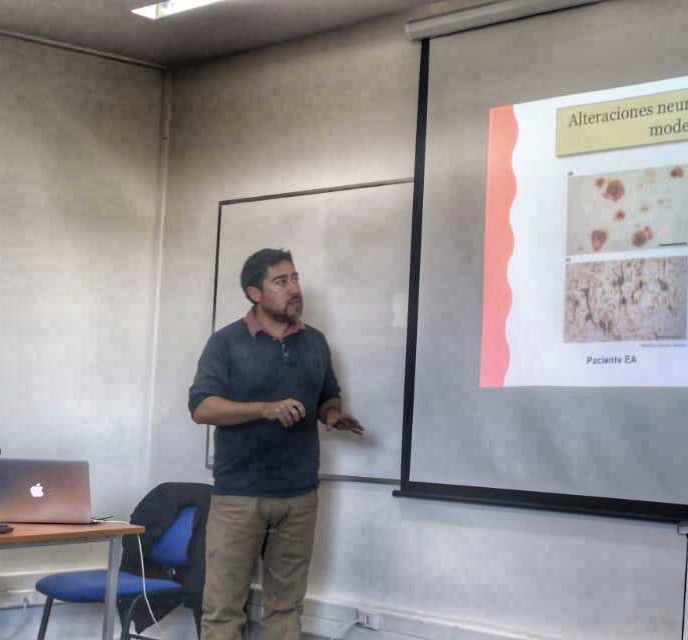CIESAL Researcher gives talk on new Alzheimer’s mitigating drug study
4/08/2020With the participation of around 30 higher education institutions, a cycle of online presentations was made in the context of the Ageing Thematic Roundtable organised by the Consortium of State Universities of Chile (CUECH). One of the presenters was the CIESAL Researcher and professor at the School of Medicine at the Universidad de Valparaíso, Álvaro Ardiles, who spoke about preliminary studies of a drug to alleviate Alzheimer’s disease. Dr Ardiles’s attendance to the Cycle also helped strengthen CIESAL’s presence in CUECH and our participation in future projects of this state organisation.

Education, diet and physical activity, among other factors, play a significant role in healthy ageing and in improving the quality of life for the elderly. Given that our population is ageing rapidly, the results of research in this field need to be considered in decision-making and public policy development. In this sense, State Universities must play a key role.
For this reason, these subjects are at the heart of the Online Presentation Cycle of the Ageing Thematic Roundtable (MT-E), which is organised by the Consortium of State Universities of Chile (CUECH) research network, and which seeks to create a basis for cooperation and collaboration in order to strengthen the capacity for research among state universities.
Álvaro Ardiles, Professor at the Universidad de Valparaíso and researcher at CIESAL, together with academics Stefany Órdenes and Eduardo Fuentes from the Universidad Arturo Prat and Universidad de Talca respectively, opened the Cycle presenting their work in the field of ageing. In his talk entitled “Participation of Panexin 1 channels in the synaptic damage observed in a model of Alzheimer’s disease”, Professor Ardiles highlighted the results of his research -carried out at the School of Medicine of our University- on the damage to the function and morphology of neurons in an animal model of Alzheimer’s disease and how a drug that blocks the channels formed by the panexin 1 protein alleviates this defect. The academic explained that they were in the preclinical phase of animal studies with this drug and hopes that this treatment will help improve the spatial memory affected in this model.



